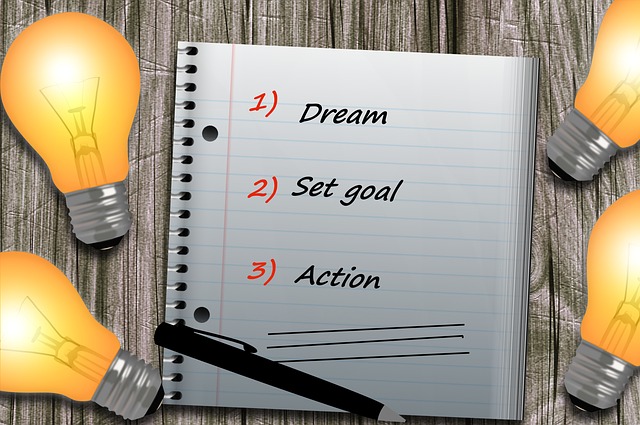This article is written by Ramanuj Mukherjee, CEO, LawSikho.
Most people have great intentions. And it is said that the highway to hell is paved with good intentions.
Most people intend to work out for example. They feel great about their intention. They almost feel like a fitness freak without ever working out because they strongly believe in the need to work out. They are “pro working out”. They think about working out a lot. They talk about it a lot. They buy gym clothes and nice shoes. They read a lot of articles about it and follow all the right hashtags on Instagram.
And it makes them feel like they are doing something. They feel accomplished until they see themselves in the mirror.
Intentions don’t move the needle. For that you need action. But we are totally capable of creating an illusion of achievements without any action being taken, simply with our intention, mental preparation and what not. It’s not real progress, but an illusion of progress.
And action is damn hard. There is so much inertia. How do I get started? Where do I even begin?
It is so much more tempting to feel good by having the right intentions, making the grand plans, talking about how you are going to get the beach body within months.
Actual work is a different ballgame.
You need to stop the game of mental preparation which is another form of procrastination. You have to stop justifying various kinds of procrastination including cultivating good intention, incessant research and waiting for the perfect moment.
You have to do it. You have to take action, no matter how small. Then the needle will begin to move very slowly, a little by little, as you keep doing more and more work.
It is not like things get easier after you get started. Yes, the beginning’is an important milestone.
But it is even harder to keep going at it, through sunny days, rainy days and cloudy days. There are always so many distractions. There are always so many unforeseen challenges. There are always random things that throw you off track.
So what do you do?
You bring out the big gun. Will power. You want to blast through all obstacles by firing from your will power gun. And this gun is supposed to never run out of bullets. At least that is what you think in your head. So you bravely venture out into the territory of danger, relying on this gun.
And it rarely works. You return defeated. One more time. The prize remains unachieved. The goals unattained. And you think, man I need a bigger gun. I need to strengthen this gun of mine, so next time I go out I can win.
And the cycle repeats.
Will power, like guns, is a handy tool. But no general goes on a war relying on the guns, no matter how big those guns are. Sure the guns have their role to play, but an army general who thinks the side with bigger guns will always win must be cuckoo.
So what does a general do? He has battle plans. He has systems. He has intelligence reports. Airstrike has to perfectly coordinate with ground forces. He chooses to open new fronts to distract the enemy or concentrate his force at once place, depending on how he is situated He has a massive system in place to make sure that the war is won.
Well coordinated systems win a war. Not the biggest guns. Even the biggest guns can be sabotaged, rendered useless or simply turned upon the owner of the gun.
Germans called it the Wehrmacht. The War Machine.
A machine is a system with many moving parts. That’s what you need to win a war. The more sophisticated systems you have, more the chances you will win a war.
Sure the dedication of soldiers and bravery also counts. But could we win wars without logistics?
We lost the China war in 1961 because we did not have enough roads on our mountainous north frontier, and we could not send enough logistical supplies, arms, equipment or even food to our troops in time! Mobilizing a large number of troops quickly is critical to win a battle but very hard without logistics being perfect.
And that requires a seamless system. And that is something our army is focussed on building after the lessons of the China war. Did you know that our army has a roads division? There is a Border Roads Organization under the Ministry of Defence, which was set up in 1960, just before the China war. Army has a separate corps of engineers also.
After the Doklam Standoff in Bhutan, what was the first thing that the Chinese did? They built more roads in that area on their side.
Who won the world war? The German war effort was led by army generals. The British won against all odds, again and again, thanks to superior intelligence, code breaking efforts which meant they could read important German communication, and their scientists!
Systems won the brutal war. Not iron will, nor military might. Hitler could not imagine that his huge military could be defeated because it was much superior. He had bigger guns. But he lost to a superior system.
In your life, therefore, if you are not building systems and relying on the will power to get things done, you are making a great mistake.
Success in life is about building fantastic habits, great systems that reinforce those habits and discipline to keep working on putting in place better and better systems as you grow and outgrow your systems.
You have finite will power. Use it to build systems that will serve you in the long run when your will power will not be needed.
For example, if you want to drink more water every day, placing two or three bottles near your bed before you go to sleep is an amazing idea.
It is much better than relying on your memory to drink water in the morning. If there is a bottle near your hands, it is highly likely you will drink from it.

Systems make desirable actions easier.
Here is another example. You think before going to sleep at night that tomorrow morning I will go for a run or cycling as you please. How many times you do not feel like it in the morning and use some excuse to skip it?
Now imagine you kept your running or cycling clothes on the bed before you went to sleep and the shoes and socks right next to the bed.
Does your chance of following through increase? Absolutely. By making the first step easier with a system, or logistics, you are increasing your chances of working out in the morning.
You may have noticed that various wrist bands that measure your sleep and how many steps you walk etc are very much in vogue these days. Why? Simple. From personal experience, when you start to see how many steps you walked every day or what was the quality of your sleep last night, you begin to care about it. Suddenly you start trying to sleep better and walk more on every opportunity you get.
My life is full of various systems I have introduced. And I am also introducing new systems all the time.
Here are some examples:
I have invested in an exact body weight training program with specific daily plans that I can follow in my home. I know it’s hard for me to go to a gym, and if I enroll myself I find it hard to go due to time constraints. I also bought some gymming equipment like a pull up bar and kettlebell and placed them in my bedroom. This increase my chances of working out. The results in last 2 months have been very visible as my physique is changing.
I have a specific time in the day which is dedicated to training my sales team. I do nothing else at that time. When I did not have a fixed time, sales training was uncertain. Now it’s a fixture, even if I cannot be present. I have a colleague who is designated to lead it whether I am there or not. This is a system versus I trying to find opportunities to do sales training whenever possible.
I have reminders in place to make me do half yearly full body check ups and yearly reminders to renew my insurance. These are critical! Are you going to rely on your memory or your insurance agent? Or create your own system so that you don’t miss anything?
Systems will win over will power, every time, simply because systems are more sustainable and long term.
What systems are you building or implementing in your life?
Do you have a system in place to regularly update you on new areas of law and systematically engage in learning and development?
Lawyers who regularly learn new skills in a systematic way will always beat the ones who have no such learning and development systems.
At LawSikho we have created some very advanced learning and development systems for lawyers, which you can simply buy and deploy, and then just follow our weekly plans. We will teach you 2 new skills every week, that’s it.
Slow but systematic wins the race.
Here is an incredible offering for all litigators: Litigation library by LawSikho
Here are our diploma programs you want to enroll into:
Diploma in Intellectual Property, Media and Entertainment Laws
Diploma in Advanced Contract Drafting, Negotiation and Dispute Resolution
Diploma in M&A, Institutional Finance and Investment Laws (PE and VC transactions)
Diploma in Cyber Law, Fintech Regulations and Technology Contracts
Diploma in Entrepreneurship Administration and Business Laws
Diploma in Companies Act, Corporate Governance and SEBI Regulations
 Serato DJ Crack 2025Serato DJ PRO Crack
Serato DJ Crack 2025Serato DJ PRO Crack









 Allow notifications
Allow notifications


